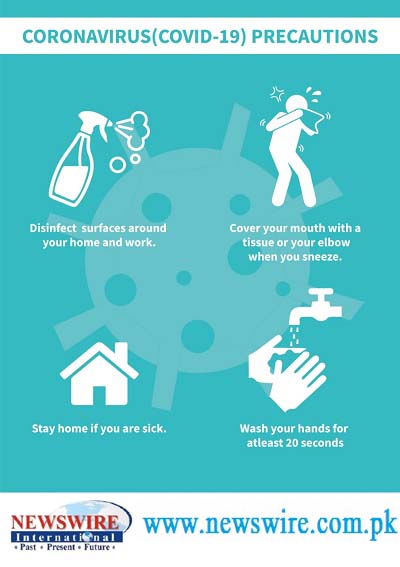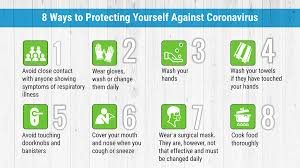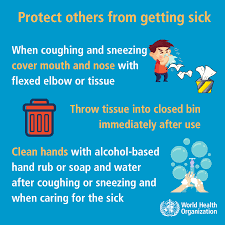The best way to wash hands properly?

The coronavirus cases have been confirmed in many other countries, including Pakistan. Pakistani authorities have introduced a number of measures to limit the spread of the virus including closures of the border with Iran, Afghanistan and the Wagah border with India, school closures, and banning public gatherings. Check with your airline whether you are affected. Some provincial authorities are introducing additional measures, including banning gatherings of more than ten people, and closures of tourist attractions and restaurants.
What is a ‘novel’ coronavirus?
A novel coronavirus (CoV) is a new strain of coronavirus.
The disease caused by the novel coronavirus first identified in Wuhan, China, has been named coronavirus disease 2019 (COVID-19) – ‘CO’ stands for corona, ‘VI’ for virus, and ‘D’ for disease. Formerly, this disease was referred to as ‘2019 novel coronavirus’ or ‘2019-nCoV.’
The COVID-19 virus is a new virus linked to the same family of viruses as Severe Acute Respiratory Syndrome (SARS) and some types of common cold.
COVID-19 has been described as a pandemic by the World Health Organization. What does that mean? Characterizing COVID-19 as a pandemic is not an indication that the virus has become deadlier. Rather, it’s an acknowledgement of the disease’s geographical spread.
UNICEF has been preparing and responding to the epidemic of COVID-19 around the world, knowing that the virus could spread to children and families in any country or community. UNICEF will continue working with governments and our partners to stop transmission of the virus, and to keep children and their families safe.
How does the COVID-19 virus spread?The virus is transmitted through direct contact with respiratory droplets of an infected person (generated through coughing and sneezing), and touching surfaces contaminated with the virus. The COVID-19 virus may survive on surfaces for several hours, but simple disinfectants can kill it.
What are the symptoms of coronavirus?Symptoms can include fever, cough and shortness of breath. In more severe cases, infection can cause pneumonia or breathing difficulties. More rarely, the disease can be fatal.

These symptoms are similar to the flu (influenza) or the common cold, which are a lot more common than COVID-19. This is why testing is required to confirm if someone has COVID-19. It’s important to remember that key prevention measures are the same – frequent hand washing, and respiratory hygiene (cover your cough or sneeze with a flexed elbow or tissue, then throw away the tissue into a closed bin). Also, there is a vaccine for the flu – so remember to keep yourself and your child up to date with vaccinations.
How can I avoid the risk of infection?Here are four precautions you and your family can take to avoid infection:
UNICEF What is the best way to wash hands properly?
Step 1: Wet hands with running water
Step 2: Apply enough soap to cover wet hands
Step 3: Scrub all surfaces of the hands – including back of hands, between fingers and under nails – for at least 20 seconds.
Step 4: Rinse thoroughly with running water
Step 5: Dry hands with a clean cloth or single-use towel
Wash your hands often, especially before eating; after blowing your nose, coughing, or sneezing; and going to the bathroom.
If soap and water are not readily available, use an alcohol-based hand sanitizer with at least 60% alcohol. Always wash hands with soap and water, if hands are visibly dirty.
Should I wear a medical mask?The use of a medical mask is advised if you have respiratory symptoms (coughing or sneezing) to protect others. If you don’t have any symptoms, then there is no need to wear a mask.
If masks are worn, they must be used and disposed of properly to ensure their effectiveness and to avoid any increased risk of transmitting the virus.
The use of a mask alone is not enough to stop infections and must be combined with frequent hand washing, covering sneezes and coughs, and avoiding close contact with anyone with cold or flu-like symptoms (coughing, sneezing, fever).

Does COVID-19 affect children?This is a new virus and we do not know enough yet about how it affects children or pregnant women. We know it is possible for people of any age to be infected with the virus, but so far there have been relatively few cases of COVID-19 reported among children. The virus is fatal in rare cases, so far mainly among older people with pre-existing medical conditions.
What should I do if my child has symptoms of COVID-19?Seek medical attention, but remember that it’s flu season in the Northern Hemisphere, and symptoms of COVID-19 such as cough or fever can be similar to those of the flu, or the common cold – which are a lot more frequent.
Continue to follow good hand and respiratory hygiene practices like regular handwashing, and keep your child up to date with vaccinations – so that your child is protected against other viruses and bacteria causing diseases.
As with other respiratory infections like the flu, seek care early if you or your child are having symptoms, and try to avoid going to public places (workplace, schools, public transport), to prevent it spreading to others.





